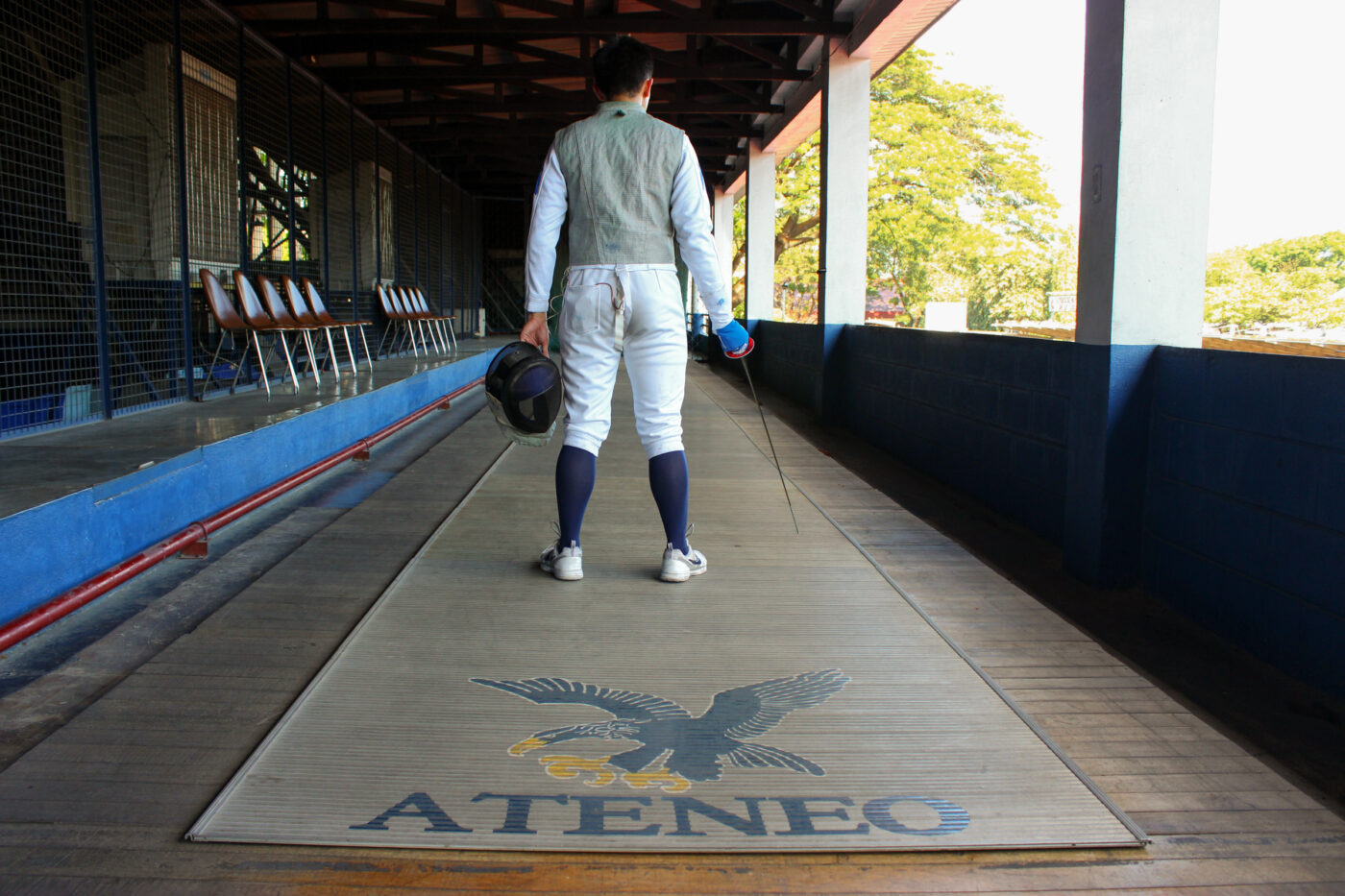COMING OFF a poor showing in the University Athletic Association of the Philippines (UAAP) Season 78 Fencing tournament–where both the Men’s and Women’s teams failed to grab a single piece of silverware–the Ateneo’s sword-toting sportsmen are going through drastic changes in order to fix the deficiencies that have hounded them all year long.
Hunting for fresh blood
One of the main reasons for the team’s subpar performance this season was the lack of discipline from the team during training, particularly after the lineup for the UAAP was already selected.
“Honestly a lot of teammates, they’re always late for training or they cut training. What happens is we don’t keep that in check,” laments Men’s Team Captain Simon Borja. “[What] we learned from [this] UAAP is [that] we have to be more strict.”
This was mostly due to the limited amount of players in consideration of the roster spots, which made players too relaxed and complacent that they have a slot in the team already. In addition, after a few monthly team tournaments, the candidates for selection have practically been selected already, dropping the morale of the other players in the training pool.
To rectify this, the team immediately held tryouts a week after their disastrous showing to immediately improve the competitiveness within the team. It also made the pool healthier and offsets the loss of the graduating seniors. This was a decision welcomed by the captains.
“Well, it’s good that [the coaches] are hosting official tryouts because it shows the team that they just can’t be complacent,” says Lady Eagle Team Captain Justine Joseph. She adds that the move to completely empty the playing roster is simply a way “to prove we’re worthy of staying with the team,” and that she recently saw “a different level of motivation” from her teammates after the announcement.
The team invited athletically gifted individuals to their training, with the mentality that it would be easier to instill fencing techniques later on, rather than getting students who had fencing experience, but lacked the fundamental athleticism that the sport demands.
Extra emphasis has also been placed in the Physical Education Department’s fencing classes, with professors being told to endorse promising students to the varsity team in order to increase the chances of finding a diamond in the rough.
All these efforts have started to bear fruit, as the team has been able to get promising players to join the squad. Initially, these selected people would only train during Fridays as their final tryout round, while the incumbents would get the day off. Presently, they are slowly being integrated into the team, being allowed to train and play with the rest of the veterans.
Rebirth of a team
One of the things that the team is highly anticipating is the opening of the Ateneo’s Senior High School, which will be accepting female students. Their excitement is due to the fact that the Boys’ Fencing Team from the Ateneo High School (AHS) currently trains with the seniors, and it is hoped that the influx of girls will eventually bolster the talent pool for the Women’s team in the same manner. Joseph shares that this will allow them to start training recruits earlier, instead of starting from scratch when the girls come into the Seniors team.
“For the Men’s team, a lot of times we get from [the] Ateneo High School,” Borja admits. The high school team also shares the same coaching staff as the Seniors, which allows them to work with prospective members of the college team.
The setup is particularly beneficial, since those who previously came from the AHS team are earlier prepared with the fencing skills and mentality expected of a Seniors member. Borja himelf is a product of this feeder system, having competed for the AHS last season, and has since been trusted to lead this year’s squad despite him being a rookie.
Another advantage of cross-training with the Juniors is that it exposes the younger players to the more competitive world of college athletics, giving them an advantage over their competitors, since the athletes get used to a higher standard of play.
It also eventually helps them if they decide to join the Seniors squad later on, as it assists the players transition to the different style and tempo of play—a common problem in the world of sports, where it is not uncommon for great high school players to struggle to adjust to the next level of competition.
And since the team’s roster has effectively been cleared, everyone on the team–from the veterans to the rookies–needs to show that they belong on the roster for the next season.
The team has also changed the process they employ in letting new players join. In previous years, players would just have to go through one tryout phase and were accepted immediately if they passed it. The new format, however, requires recruits to constantly prove that they belong in the team; coaches will hold monthly tournaments to rank each other’s skills, and this will be the main basis to determine the final lineup to be released before the start of the first semester next year.
The onus is on the incumbents to show that they still belong to the team, and to prove to the new members that the fencing team is not just another one of Ateneo’s varisty teams. As Borja says, they are not just “an easy way to attain varsity player status.”
“Not only do we have to improve our skills,” Borja says, “but we have to show the new members that it’s not easy to stay; that just because we performed poorly, [does not] mean they can be part without exerting effort.”
Rest assured, the Ateneo Fencing Team is not taking things easy after this year’s performance. With the drastic overhaul to the program, the team will be looking to improve their performance next season to plant the Blue and White’s flag on top of the fencing hill.






